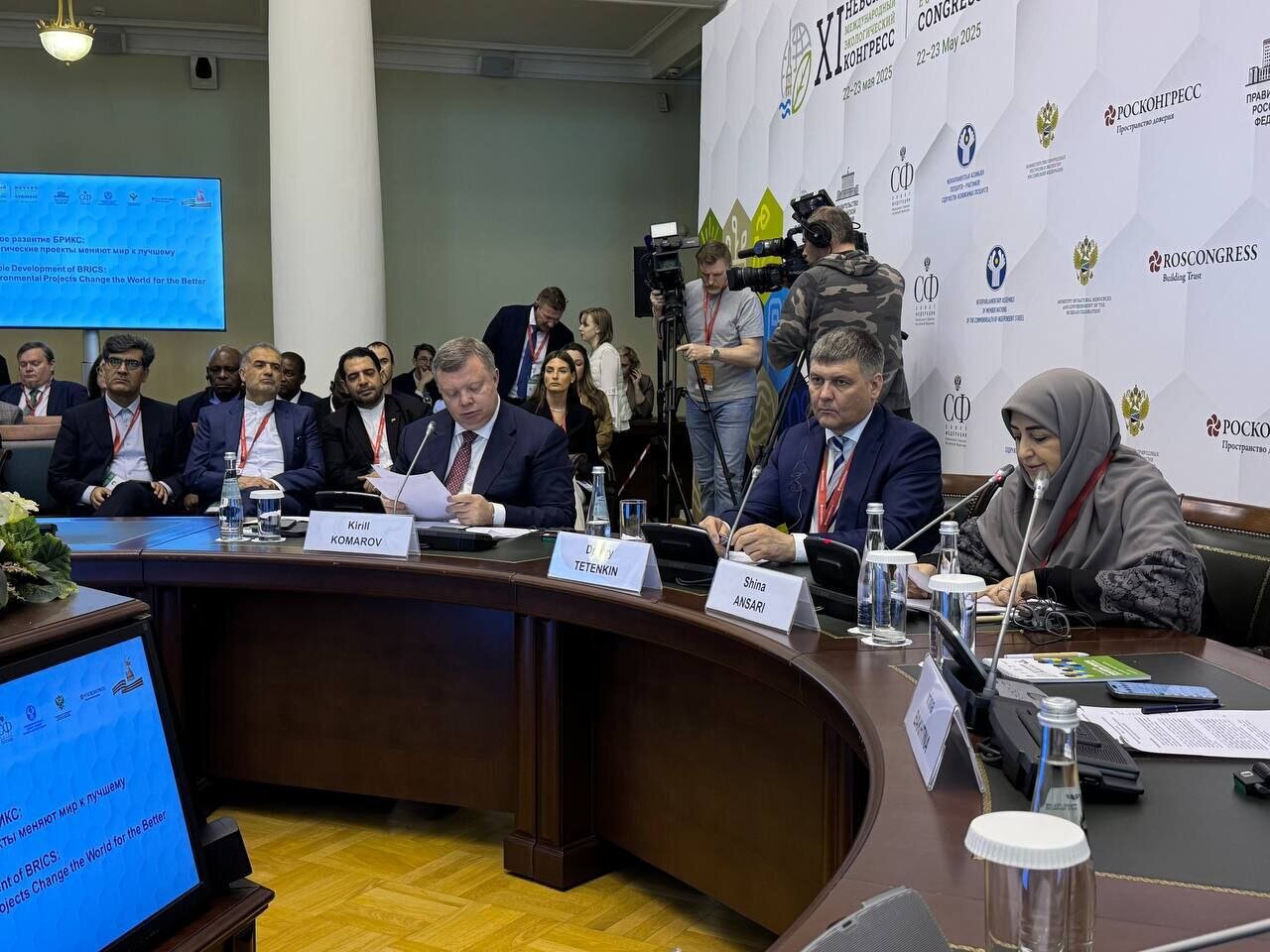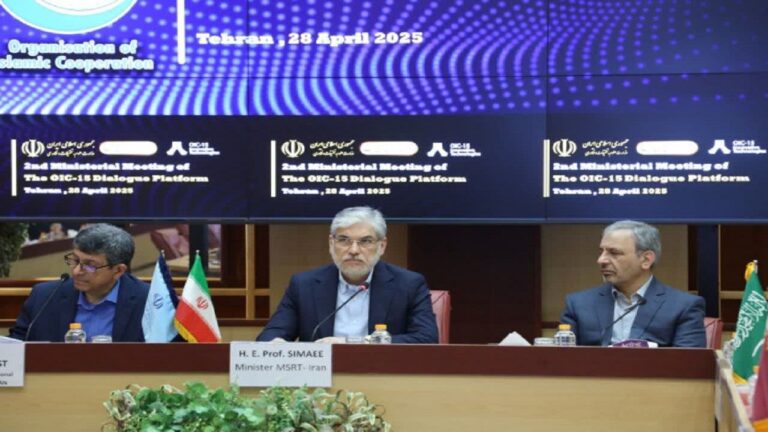Global Cooperation: The Key to Unlocking Sustainable Development, Says DOE Leader
In a recent address at the 11th Nevsky International Ecological Congress, Shina Ansari, the head of Iran’s Department of Environment, emphasized the importance of global cooperation in achieving sustainable development. Without a united effort among nations, the path to sustainable progress remains fraught with challenges.
Ansari’s remarks were delivered during the panel discussion titled ‘BRICS and Sustainable Development of Environment’, which took place on May 22 in Saint Petersburg, Russia. She highlighted that sustainable development is not merely a national effort but a collective endeavor that requires nations to act in unison.
“Sustainable development must be a global effort in which nations unite and act together to overcome the challenges,” Ansari stated, as quoted by IRNA. She further warned that isolated actions taken by individual countries could lead to diminished impacts and potentially tarnish the credibility of sustainable development as a genuine goal.
To promote effective collaboration, Ansari proposed the creation of a strategic and foundational program aimed at guiding collective efforts towards sustainability. She pointed out that the essence of sustainable development lies in its ability to transform mindsets. This evolution encourages individuals and communities to reflect on their actions and their repercussions on the planet, which is a far more impactful change than temporary fixes.
Unlike conventional solutions that may offer quick results, sustainable development targets the root causes of environmental, economic, and social problems. To attain the goals associated with sustainable development, it is essential to invest in infrastructure, education, and public awareness. “Without this, we cannot expect citizens to embrace concepts they are unfamiliar with,” she reiterated.
Furthermore, Ansari elaborated on Iran’s commitment to aligning with sustainable development principles. She stated, “The sustainable development model lays the basis for a future in harmony with nature and a guarantee of human health and well-being.” Today, sustainable development is crucial not only for environmental protection but also for enhancing the quality of life and ensuring equal opportunities across diverse societies.
To facilitate this, Iran has implemented several initiatives, including:
- Incentives for Corporate Social Responsibility (CSR): Companies are encouraged to adopt CSR practices.
- Adherence to Environmental, Social, and Governance (ESG) standards: This aligns Iran with global sustainable development benchmarks.
- Promotion of environmental sustainability: Encouraging the private sector to prioritize sustainable economic growth and social well-being.
These measures signify Iran’s dedication to fostering an environment that values sustainability and integrates it into economic and trade frameworks.
Nevsky International Ecological Congress Overview
The 11th Nevsky International Ecological Congress took place from May 22 to 23, gathering ministers of the environment from over 40 countries, including Iran, Azerbaijan, Algeria, Burkina Faso, Belarus, Serbia, Indonesia, Jordan, Cambodia, and Kenya.
The primary objective of this Congress is to devise effective and sustainable development mechanisms to protect the environment amidst changing climatic conditions. The event aims to facilitate interstate and intersectoral dialogues concerning pressing environmental issues, with a wide array of participants, including representatives from international organizations, government authorities, and experts from various sectors.
This year’s Congress commenced with a Youth Programme on May 22, which became a significant aspect of the business agenda. The discussions revolved around:
- Youth Engagement: Addressing climate issues and promoting environmental awareness.
- Cultural Development: Fostering a culture of environmental volunteering and inclusion of children in the green agenda.
- Climate Initiatives: The role of youth in spearheading climate initiatives for a sustainable future.
Additionally, the roundtables and thematic sessions held on May 22 focused on a variety of topics, including:
- Food Security and Climate Risks
- Sustainable Ecotourism
- Utilizing Artificial Intelligence and Digital Solutions for Environmental Benefits
- International Cooperation within BRICS
- Conditions in the Caspian Region
- Development of the Circular Economy
- Women’s Role in Promoting Eco-Initiatives
- Green Investment
- Management of Mineral Resources
- Low-Carbon Technologies
On May 23, discussions transitioned to modern sustainable development practices in megacities, focusing on:
- Making Transport More Environmentally Friendly
- Preserving Green Areas
- Innovative Approaches to Health Preservation
This Congress represents a vital platform for addressing critical environmental issues and fostering international collaboration towards sustainable development goals.






